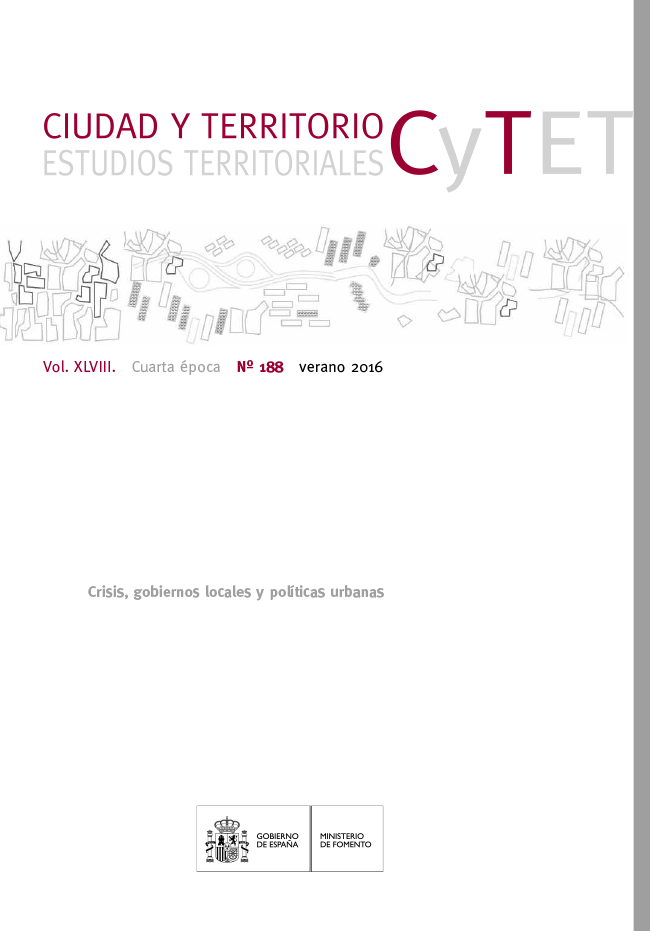Crisis and Evolution of Urban Governance in Spain
Keywords:
Urban governance, Spain, urbanismo of austerity, Madrid, BarcelonaAbstract
This paper analyses how the urban development of austerity has affected urban
governance in Spain. Since democracy was restored in Spain in the 1970s, local authorities and
regional governments have played a key role in the development of the Spanish welfare system. In
the 1990s there was an increase in urban enterprise in the major cities, with the development of
new megaprojects and public–private partnerships. As a result of the 2008 economic crisis, high
unemployment and increasing social inequality has occurred alongside a programme of institutional
and legal reforms carried out by the Spanish government and the European Union. These reforms
involve budget cuts and an attempt to recentralise welfare policy at the expense of regional and
local government, while further entrenching neoliberal urban policies. In response to this situation,
the 2015 local elections saw new coalitions taking shape on the councils of major cities, bringing
together the social response in recent years. Through a description of the general evolution and a
comparison between the country’s two major cities, Madrid and Barcelona, we explore both the
similarities and the variations in urban governance in Spain.
Downloads
Downloads
Published
How to Cite
Issue
Section
License
Copyright (c) 2016 Marc Martí-Costa, Mariona Tomàs

This work is licensed under a Creative Commons Attribution-NonCommercial-NoDerivatives 4.0 International License.
Considering the provisions of the current legislation on Intellectual Property, and in accordance with them, all authors publishing in CyTET give -in a non-exclusive way and without time limit- to the Ministry of Transport, Mobility and Urban Agenda the rights to disseminate, reproduce, communicate and distribute in any current or future format, on paper or electronic, the original or derived version of their work under a Creative Commons Attribution-NonCommercial-NoDerivative 4.0 license International (CC BY-NC-ND 4.0), as well as to include or assign to third parties the inclusion of its content in national and international indexes, repositories and databases, with reference and recognition in any case of its authorship.
In addition, when sending the work, the author(s) declares that it is an original work in which the sources that have been used are recognized, committing to respect the scientific evidence, to no longer modify the original data and to verify or refute its hypothesis. Author(s) also declare that the essential content of the work has not been previously published nor will it be published in any other publication while it is under evaluation by CyTET; and that it has not been simultaneously sent to another journal.
Authors must sign a Transfer of Rights Form, which will be sent to them from the CyTET Secretariat once the article is accepted for publication.
With the aim of promoting the dissemination of knowledge, CyTET joins the Open Journal Access (OA) movement and delivers all of its content to various national and international indexes, repositories and databases under this protocol; therefore, the submission of a work to be published in the journal presupposes the explicit acceptance by the author of this distribution method.
Authors are encouraged to reproduce and host their work published in CyTET in institutional repositories, web pages, etc. with the intention of contributing to the improvement of the transfer of knowledge and the citation of said works.








 Enlace a CyTET en Linkedin
Enlace a CyTET en Linkedin